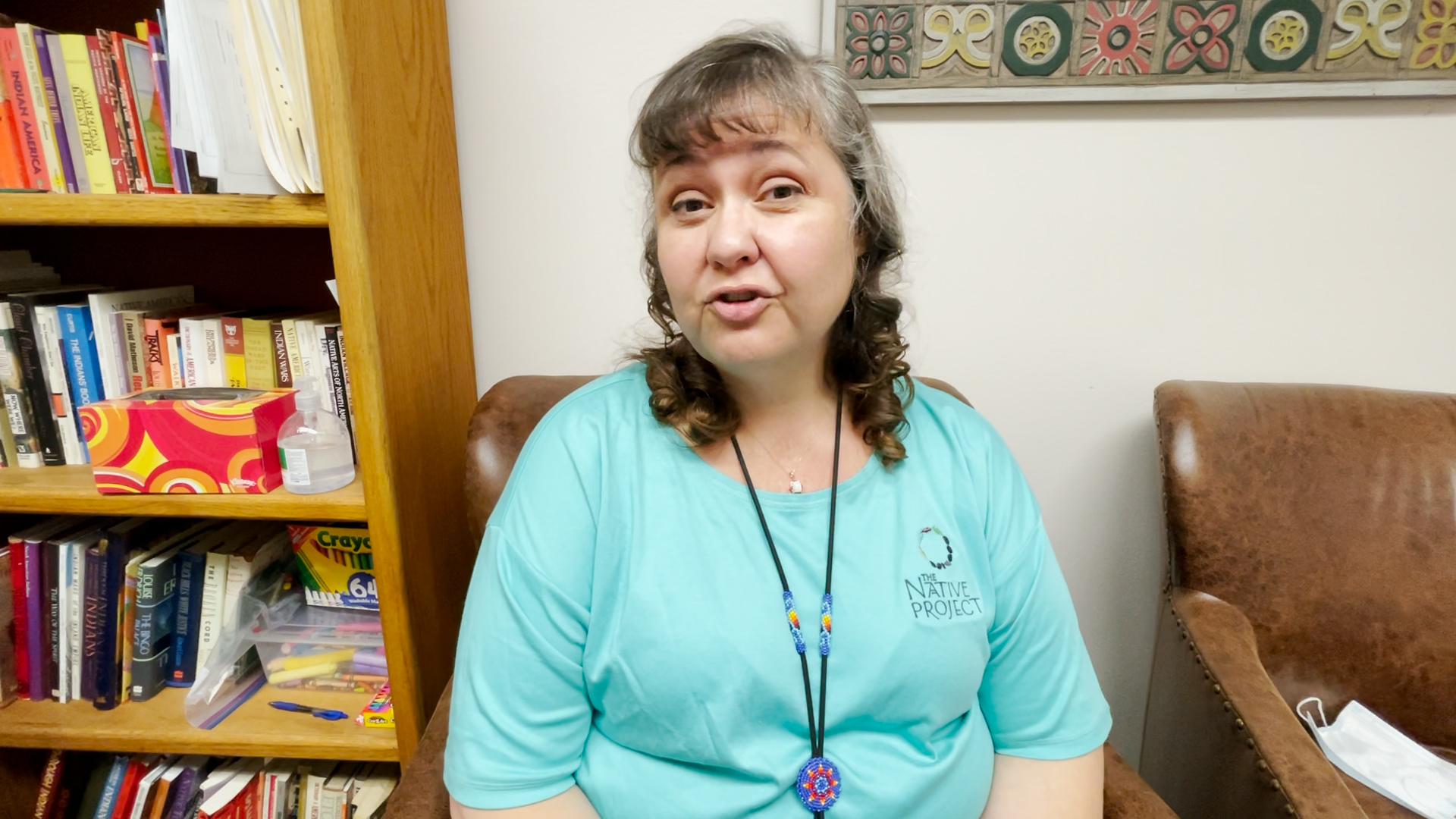Deanna S How to Decide if You Need More Support
I’m Diana Spencer. I’m a mental health counselor, and I’m a substance abuse counselor. I work at the Native Project. I’ve been working here, seeing youth for mental health counseling for the last four years. I see kids from age five to 18.
Neat. I always think about mental health is we all have some issues where we’re dealing with sadness, loneliness, isolation. Or we may have more serious issues like trauma. And I think that they say that 70% of the population deals with these issues. So it isn’t just like somebody else’s problem.
It’s all of our problem, and it’s in our families. It’s in our homes. It’s in ourselves. I know that I’ve had major depressive disorder since I was a young teen. It’s hereditary in my family.
So I was able and very fortunate to get some really good counseling early on, which made me want to be a counselor to help other kids. Feelings are just feelings. They’re not bad or wrong. We all feel sad. We feel anxious.
We feel frustrated, even angry. And a lot of times those are the feelings that are represented or depression. People have States of depression. It can be temporary. It can be a situational thing like maybe you have had a loss.
And so you feel depressed. And as time goes by, those symptoms will lighten and decrease. And sometimes, like I spoke about, it can be hereditary or long term. And that’s more intense. So that’s more like if you’ve had it for over a year or two years, then that might be more longterm depression.
And how we decide if people need to enter treatment or get some counseling or some additional support is if those symptoms become intrusive or barriers to doing what they want or like or feeling joy or happiness or being able to function in their daily life.



